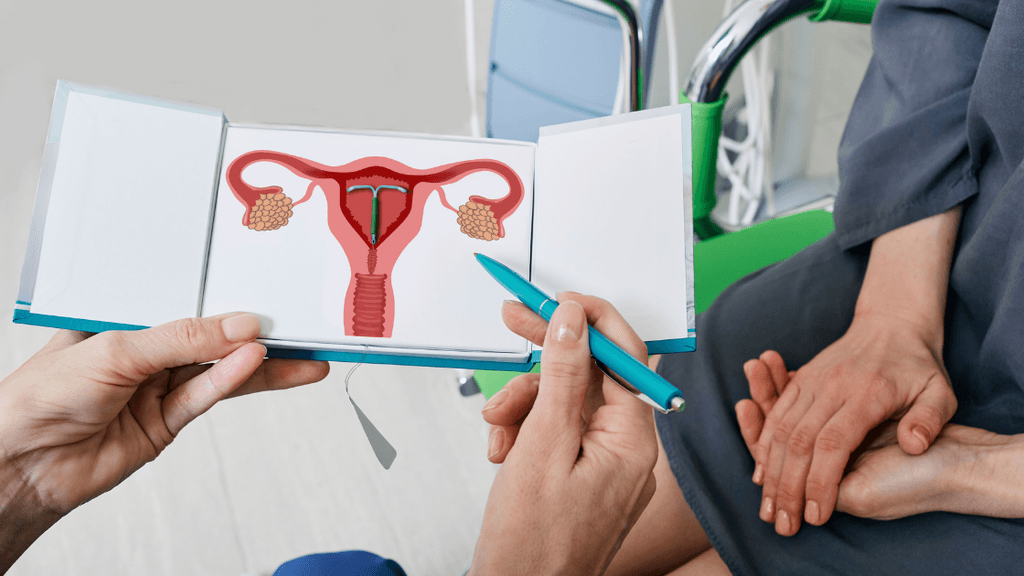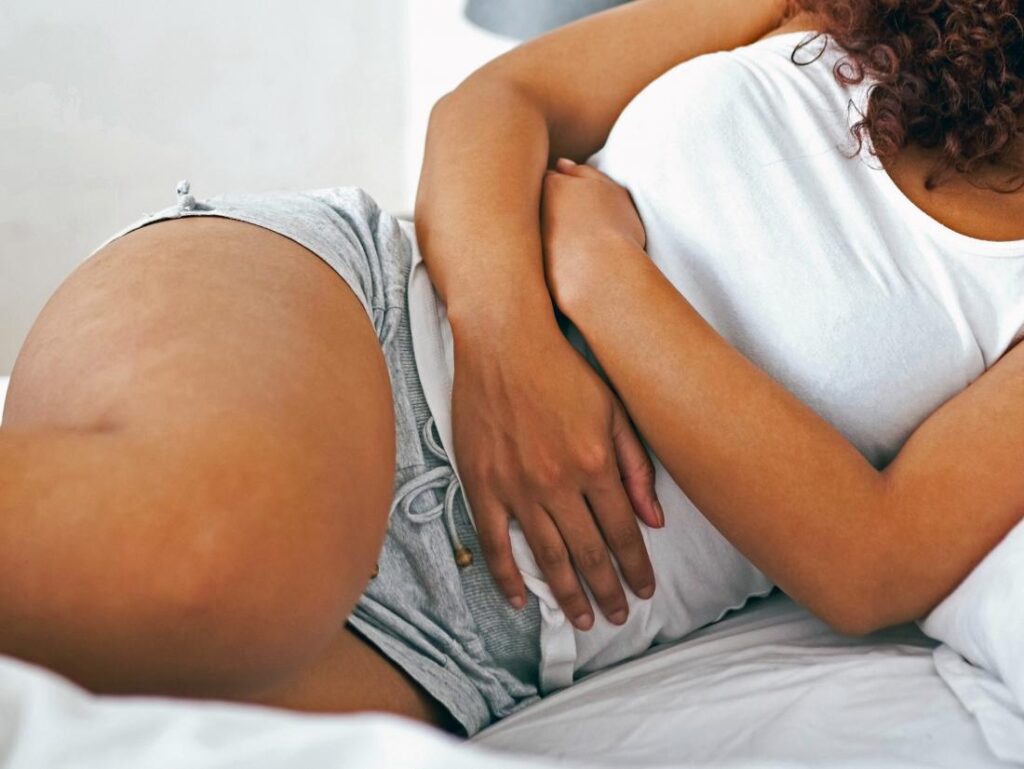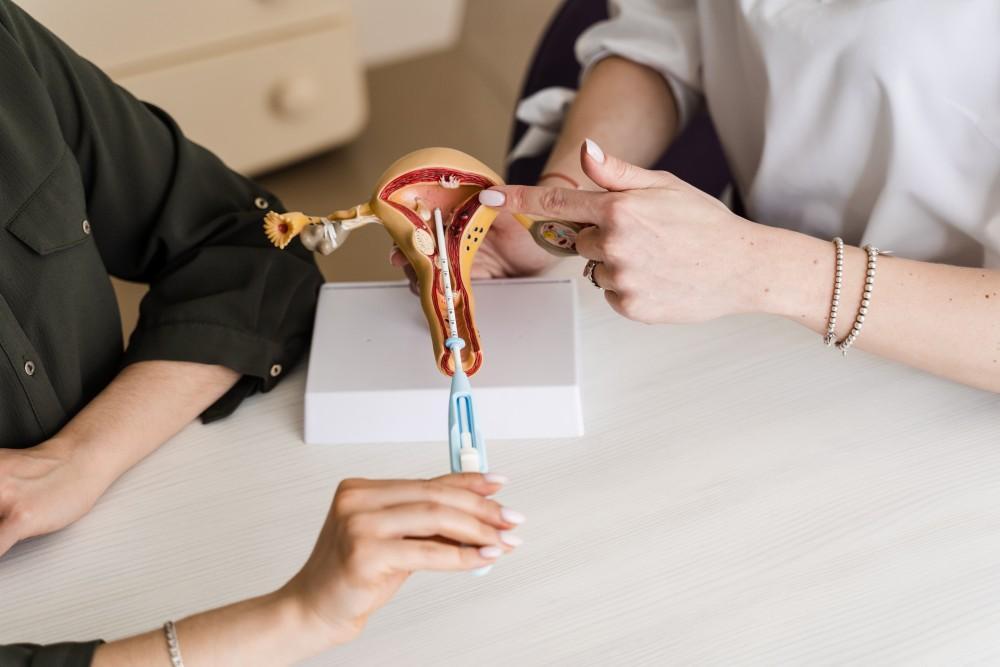You’ve noticed something feels off—maybe your IUD strings are shorter or longer than usual, or you’re experiencing unexpected cramping. You’re pretty sure your IUD has moved, but here’s the catch: you’re not sexually active right now. So you might be wondering, “Is this really a big deal? Do I still need to tell my doctor?”
Recommended: Is the Copper IUD Better for Heavy Periods?
It’s a common question, and one many people are hesitant to ask. After all, if pregnancy isn’t a concern, does it really matter if your IUD is slightly out of place? The truth is, yes—it absolutely does. Even when you’re not having sex, a dislodged IUD can pose health risks that should not be ignored.
In this article, we’ll break down why it’s important to notify your healthcare provider if you suspect your IUD has shifted, what signs to watch for, and how proper follow-up can protect your reproductive health—now and in the future.
Understanding IUDs and Dislodgement
An IUD (intrauterine device) is a small, T-shaped contraceptive device placed inside the uterus to prevent pregnancy. It works by either releasing hormones or using copper to block sperm from fertilizing an egg. While it’s a reliable, long-term birth control method, it must stay properly positioned in the uterus to remain effective and safe.

A dislodged IUD means the device has moved from its original position—either partially or completely. This can happen due to heavy periods, uterine contractions, or even without an obvious cause. Signs of a shifted IUD include unusual cramping, heavier bleeding, or changes in string length.
Recommended: How to Switch from the Pill to an IUD
Even if you’re not sexually active, a dislodged IUD can cause complications like infection, discomfort, or damage to your uterus. That’s why it’s important to check your IUD regularly and inform your doctor if you notice anything unusual. Proper medical attention can help prevent further issues and ensure your reproductive health stays on track.
Why IUD Placement Still Matters – Even If You’re Not Sexually Active
If you’re not currently having sex, it might seem like a dislodged IUD isn’t something to worry about. But the position of your IUD is still very important—whether or not you’re using it for birth control right now.
Here’s why proper placement matters:
1. Health Risks Can Still Occur
Even without the risk of pregnancy, a misplaced IUD can lead to:
- Uterine irritation or injury
- Unusual cramping or spotting
- Increased chances of infection
- In rare cases, damage to the uterus (perforation)
2. Future Protection May Be Affected
If your IUD isn’t in the right position, it may not work when you do become sexually active again. You could be relying on protection that’s no longer effective without realizing it.
3. Many Use IUDs for More Than Just Birth Control
IUDs aren’t only for preventing pregnancy—they’re also prescribed to manage:
- Heavy or painful periods
- Hormonal imbalances
- Conditions like PCOS or endometriosis
If the device is out of place, it might stop helping with those health issues.
Recommended: What’s the Best Birth Control Method with the Least Side Effects?
4. Early Action Can Prevent Bigger Problems
Ignoring a dislodged IUD might lead to complications over time. Seeing your doctor early can help fix the issue before it turns into something more serious.
Can a Dislodged IUD Cause Health Issues Without Sexual Activity?
Yes—a dislodged IUD can definitely cause health issues, even if you’re not sexually active. While many people associate IUDs with preventing pregnancy, their correct placement plays a much bigger role in maintaining reproductive health and comfort.
Here’s how a dislodged IUD can affect you, regardless of your sexual activity:
1. Increased Risk of Infection
When an IUD shifts from its proper position, it may irritate the uterine lining or partially exit the cervix. This can create an entry point for bacteria, raising the risk of infections such as pelvic inflammatory disease (PID)—which can occur even without sex.
2. Pain and Cramping

A displaced IUD can press against the walls of the uterus or cervix, causing sharp cramps, lower back pain, or pelvic discomfort. This pain can be constant or triggered by movement, even during daily activities.
Recommended: 6 Family Planning Tips for Women with PCOS
3. Abnormal Bleeding
Spotting, heavy periods, or bleeding between periods are common signs of a dislodged IUD. These symptoms can interfere with your menstrual cycle and may indicate the IUD is no longer working as intended.
4. Uterine Perforation (Rare, but Serious)
In rare cases, an IUD can puncture the uterine wall during insertion or if it migrates out of place. This can lead to severe pain, internal damage, and the need for surgical removal—even in people who are not sexually active.
5. Reduced Effectiveness for Other Health Conditions
If you’re using an IUD to manage conditions like endometriosis, PCOS, or heavy bleeding, it won’t be effective if it’s not properly positioned—meaning symptoms can return or worsen.
Should You Always Inform Your Doctor? Here’s Why the Answer is YES
If you suspect that your IUD has moved or been expelled, you might be tempted to wait it out—especially if you’re not currently sexually active. But when it comes to your reproductive health, silence can do more harm than good. Yes, you should always inform your doctor. Here’s why:
1. To Prevent Complications
A dislodged IUD can irritate or damage the lining of the uterus, cause painful cramping, and even lead to infection. Leaving it unaddressed increases your risk of serious issues like pelvic inflammatory disease or uterine perforation, which may require surgery.
Recommended: What’s the Best Birth Control Method with the Least Side Effects?
2. To Ensure It’s Still Working Properly
Whether you’re using your IUD for birth control or for managing menstrual symptoms, a device that has moved is no longer fully effective. Your doctor can confirm if the IUD is still in place and functioning as intended—or if it needs to be removed or replaced.
3. To Protect Your Future Health
Even if you’re not worried about pregnancy now, your IUD may still impact your future fertility or comfort. Catching a dislodged IUD early can prevent lasting complications and make future contraceptive options easier and safer to use.
4. Peace of Mind
Wondering if your IUD is in the wrong position can be stressful. A quick appointment and possibly an ultrasound can clear up any concerns, confirm that everything is okay, and give you peace of mind.
Do You Only Need to Worry About an IUD If You’re Having Sex?
It’s a common misconception that IUDs only matter if you’re sexually active. After all, their main purpose is contraception, right? While it’s true that IUDs are primarily used to prevent pregnancy, their role in your overall reproductive health goes far beyond that. So no—the concern doesn’t stop just because you’re not having sex.
Here’s why you should still pay attention to your IUD, no matter your sexual activity:
1. IUDs Are Also Used for Medical Reasons

Many people use IUDs to manage:
- Heavy or irregular periods
- Painful menstrual cramps
- Hormonal imbalances
- Conditions like PCOS or endometriosis
Recommended: How to Choose a Birth Control Method Without Side Effects
If your IUD becomes dislodged, it may stop providing relief from these issues.
2. A Misplaced IUD Can Still Cause Health Problems
Regardless of your sex life, a dislodged IUD can:
- Irritate or damage the uterus
- Cause infection
- Lead to abnormal bleeding or pain
- Increase the risk of complications that may require medical intervention
These issues can affect your daily comfort, hormonal balance, and future fertility.
3. Your Body Deserves Proper Care—Always
Your reproductive health is important at every stage of life—not just when you’re sexually active. Keeping track of your IUD placement helps protect your body, avoid complications, and ensure that you’re getting the full benefits of the device.
Conclusion
Whether you’re using an IUD for birth control or to manage other health conditions, one thing is clear: its placement and condition matter—regardless of your sexual activity. A dislodged IUD isn’t just about the risk of pregnancy; it can lead to pain, infection, ineffective treatment of menstrual symptoms, and even long-term reproductive complications if left unaddressed.
Even if you’re not currently having sex, it’s important to stay in tune with your body. Pay attention to signs like unusual cramping, changes in bleeding, or missing IUD strings. If you suspect your IUD has moved, don’t ignore it—talk to your doctor.
Taking that simple step can protect your health, prevent complications, and give you peace of mind. Remember, your well-being matters every day—not just when you’re sexually active.
